The UW-Madison Libraries became members of Dryad, a non-profit, community-driven data repository and organization, in June of 2021. While Research Data Services has been recommending Dryad as a trustworthy generalist data repository solution to campus researchers for many years, as members, researchers could now have their deposit costs covered by the Libraries. This increased the availability of Dryad as a resource to more of the campus community for whom cost may have previously been a barrier and who could now take advantage of Dryad’s many great features like integrations into some publisher workflows, integrations with GitHub, as well as Dryad’s curation support.
This was an especially big benefit with increasing federal public access requirements on the horizon. In 2023, NIH would increase its requirements for data sharing and in 2025, federal public access requirements will expand to all federal granting agencies. As a large campus with lots of scientific data, of which a sizable amount can be shared openly and without special licensing, Dryad provided a scalable and trustworthy solution for this type of data. Leveraging Dryad in this manner, also allowed the Research Data Services team to focus on supporting researchers whose data was more sensitive or had special needs that required more specialized repositories.
Our Dryad membership has been a great success and while we knew the UW-Madison community were using the repository, we also wanted to gain a better picture of the impact. Luckily, one Research Data Analyst & Initiatives Assistant dug into the data and helped us understand 1)how the campus had been using Dryad prior to our membership and 2) how it has been used since we joined.
An Overview
Below you will find a summary of the impact of UW-Madison contributions in Fall of 2024. UW-Madison 566 datasets totaled 1,766 GB and had 129,192 total views and 28,540 downloads! A discussion of dataset volume trends and distinct dataset deposit counts follows.

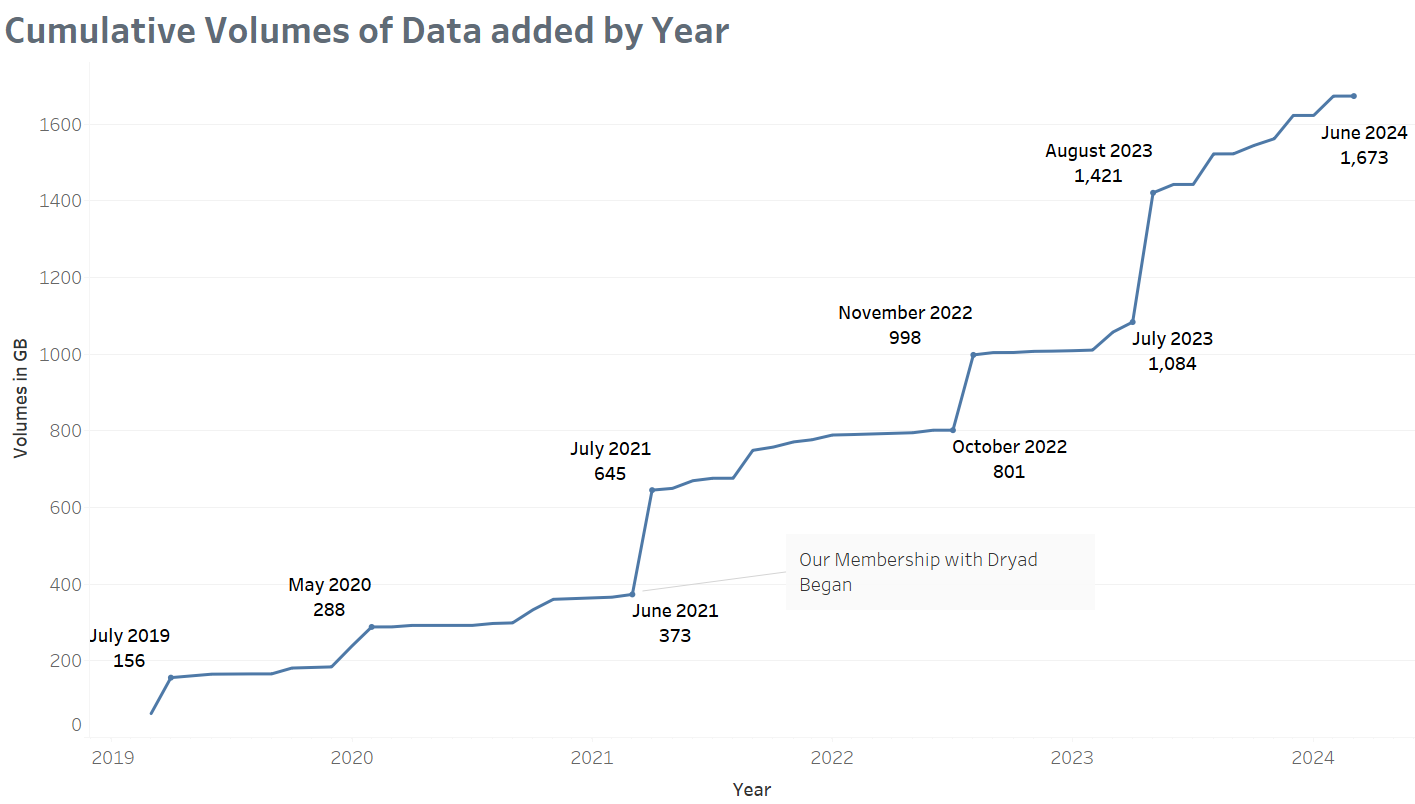
The chart indicates a consistent pattern of growing data accumulation on Dryad over time, measured in gigabytes (GB) from July 2019 to June 2024, with sharp increases observed annually from 2021 to 2024. Our membership with Dryad began in mid-2021, which likely contributed to the first significant rise in data volume observed at that time. In 2022, Research Data Services conducted an increased outreach effort in advance of the forthcoming 2023 NIH data sharing policy changes. This included a presentation on data repositories at UW-Madison’s Data Science Research Bazaar, which is aimed to equip researchers at all career stages with the digital skills and tools necessary to enhance their research capabilities, emphasizing data sharing and community engagement. Participation in this campus outreach event as well as in the Research Professionals Conference held in June 2022— where we discussed our services and received follow-up questions on Data Management Plans (DMP) and Dryad—further bolstered use of Dryad. Additionally, the release of the OSTP “Nelson Memo” in August 2022 may have spurred a surge in data sharing, particularly concerning federally funded research. These activities and potential for increased awareness likely explain the notable spikes in data volume that year. In January 2023, the implementation of the NIH Data Management and Sharing Policy further accelerated data growth, as institutions increasingly complied with new data-sharing requirements and awareness of the importance of sharing publicly-funded research data grew. The impact of these strategic events has continued to increase campus use of Dryad, resulting in a cumulative total of 1,673 GB of data by June 2024.
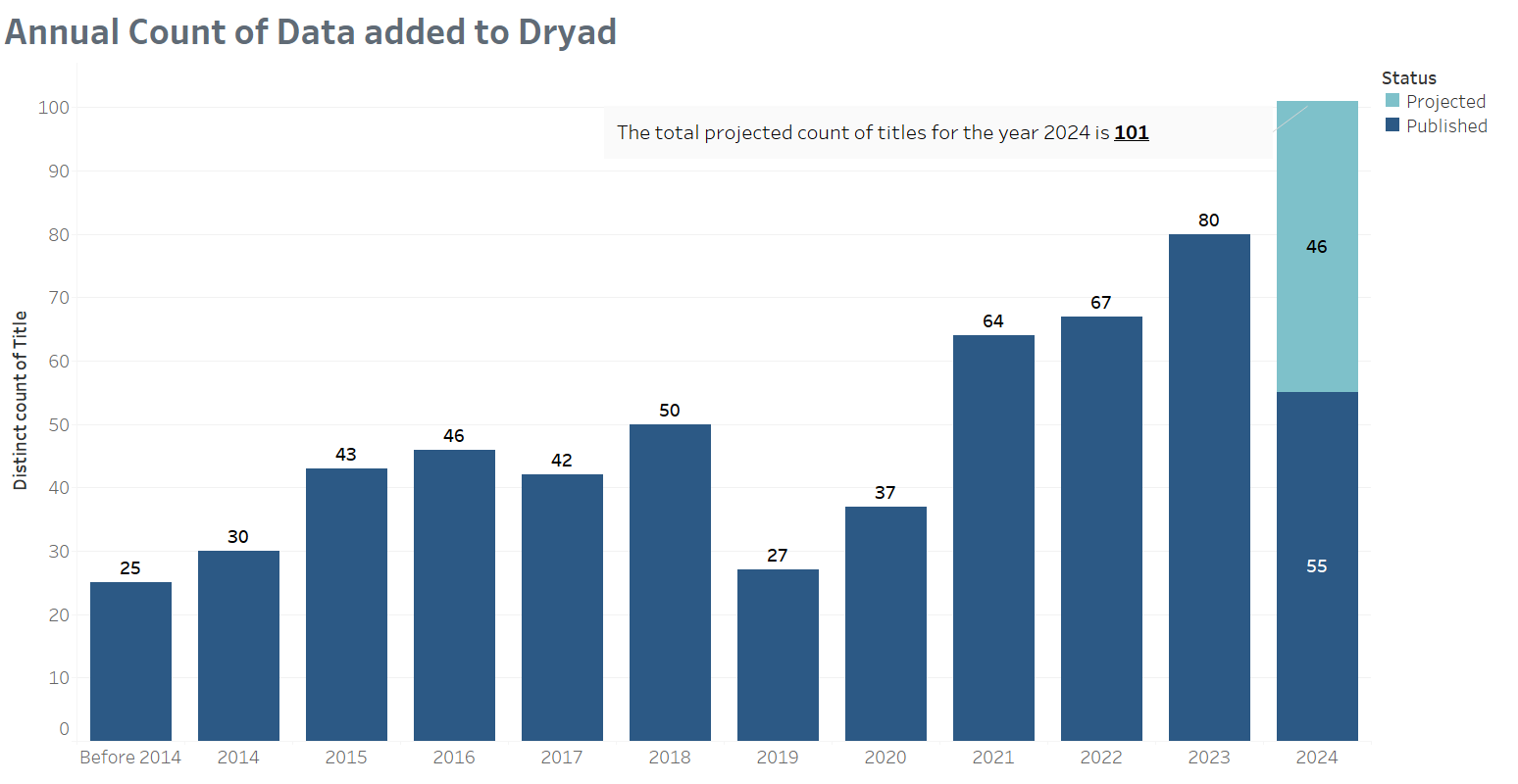
This chart highlights the distinct count of dataset titles added to Dryad from before 2014 through 2024. While looking at the previous analysis of data volumes, we had been unsure whether the observed volume growth was due to increased distinct datasets being deposited or simply larger file sizes being deposited, this chart clearly shows a significant rise in distinct dataset titles. The dip in titles added during 2019 and 2020 aligns with the pre-COVID and early COVID-19 pandemic, reflecting the global slowdown in research activities. However, a strong recovery is evident from 2021 onwards, with titles increasing from 37 in 2020 to 80 in 2023. Our campus outreach efforts have also significantly contributed to the increase in titles published since 2021. The projected total for this year is nearly 100 titles, marking the highest number added in a single year. This indicates that our repository’s growth is fueled not only by larger file volumes but also by a substantial rise in the number of titles deposited.
Publications & Downloads
Below you will find an overview of some of the publisher and download trends for UW-Madison datasets in Dryad. The repository provides a helpful integration in the publishing workflows of a number of publishers. The first chart below illustrates the top 10 journals associated with UW-Madison datasets, followed by the views the datasets associated with those journals have received. Finally, you can see the top 10 downloaded UW-Madison datasets associated with publications. Topics span maize and potato genomes, wild bee species, primate aging, and more!
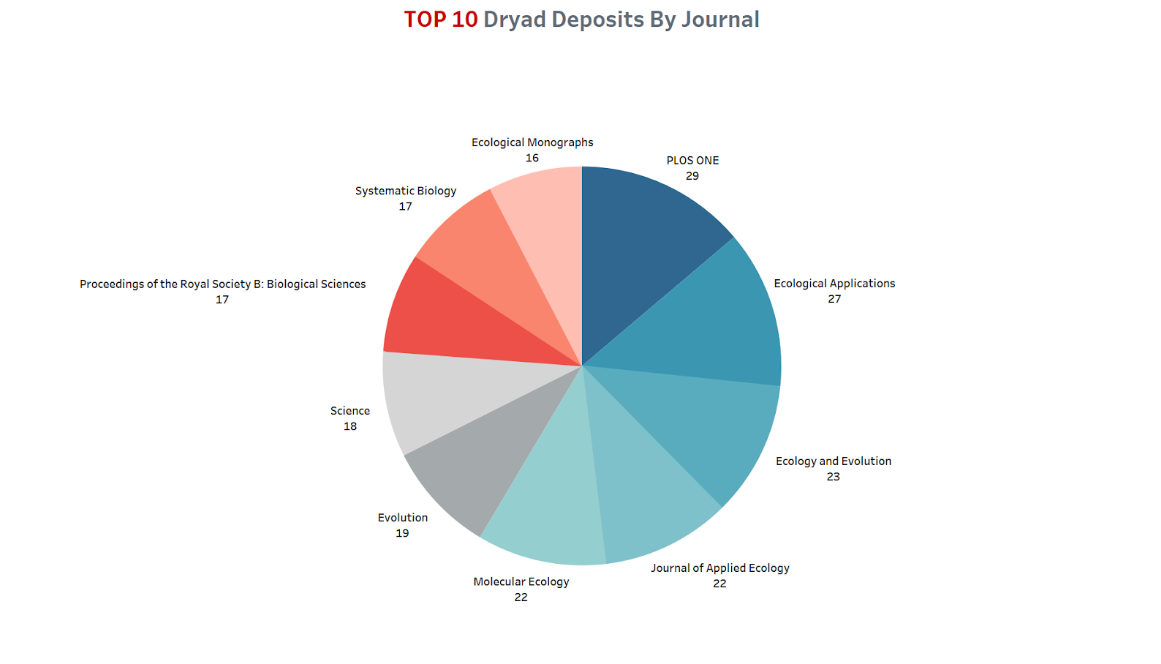
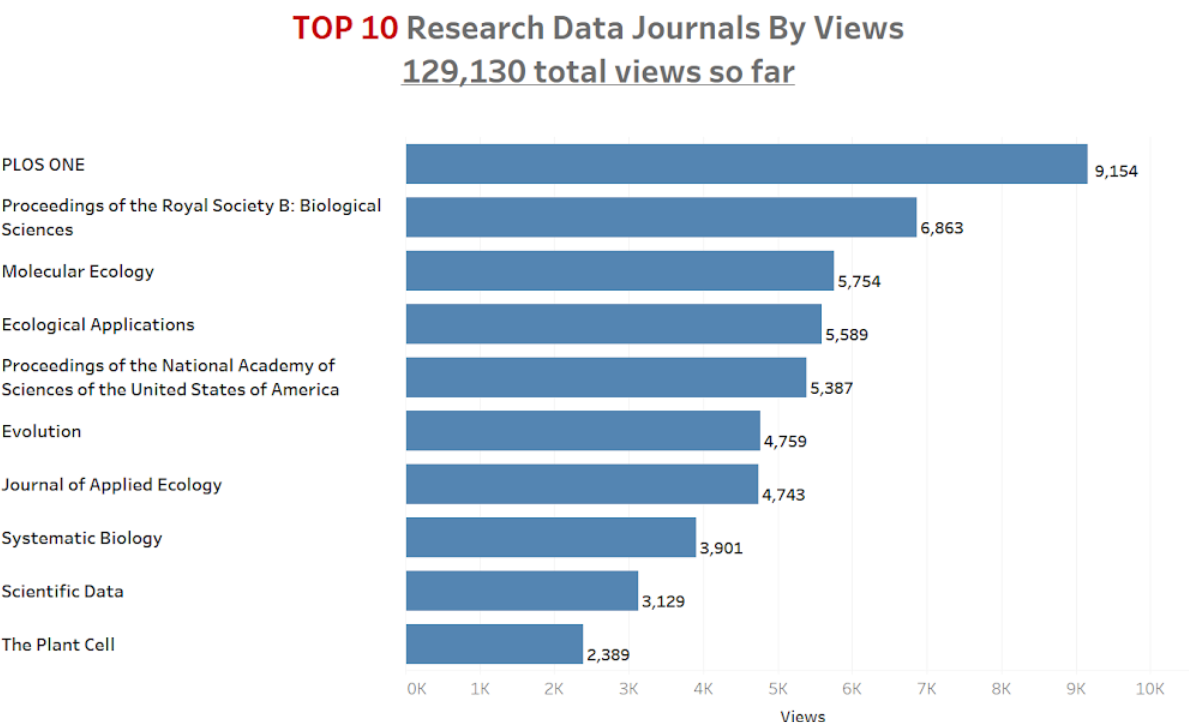
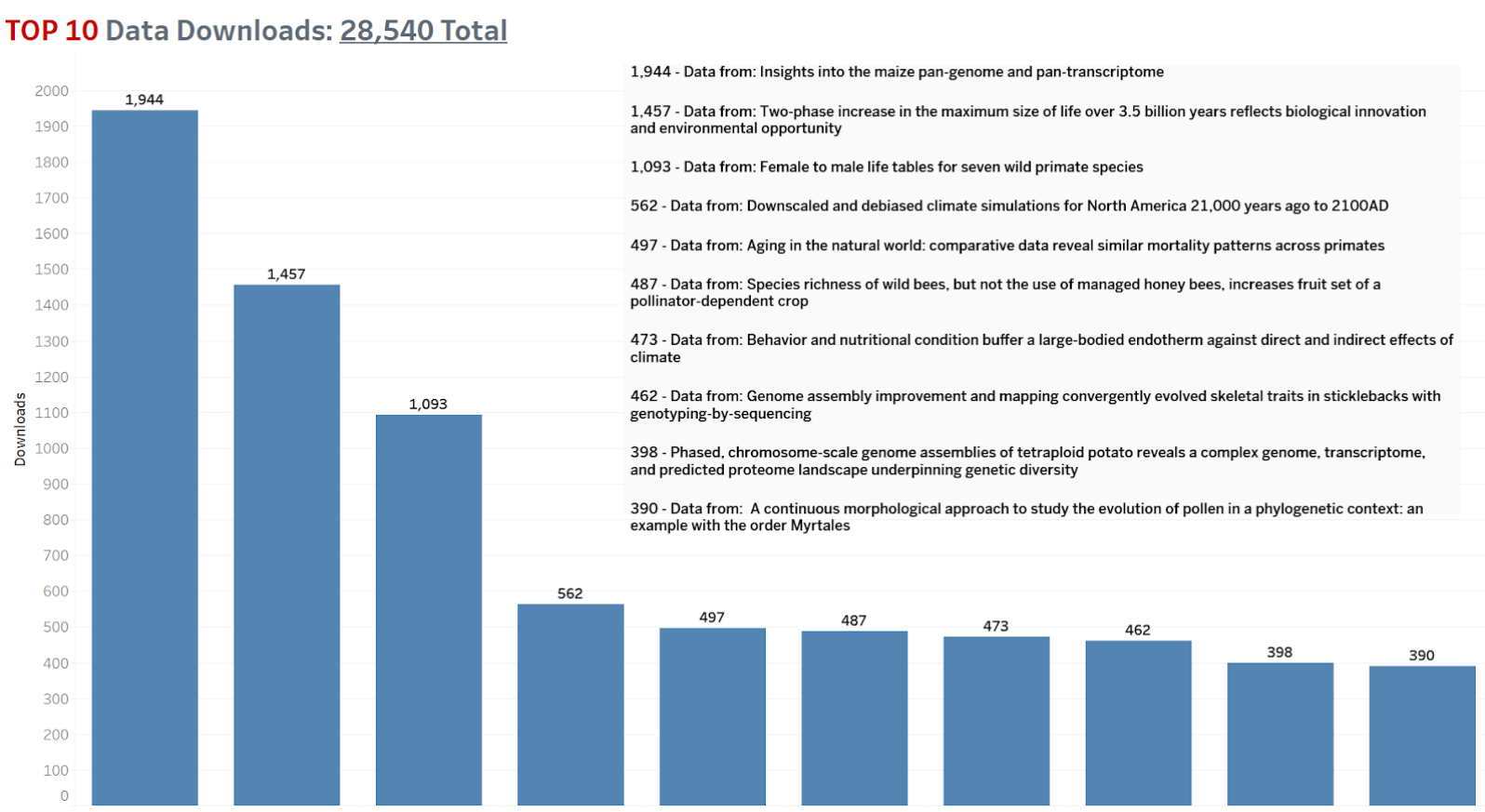
Collaborators: National & Global Connections
UW-Madison researchers collaborate with colleagues around the world to conduct research whose findings impact not only the citizens, animals, and ecosystems of our state, but of those around the world. We’re grateful for these collaborators both within and far beyond the US who help improve the health, safety, agriculture, innovation, and much, much more for the daily world around us. Below you can see an overview of the global affiliations reported in UW-Madison datasets. Following that you can see the US institutions affiliated with UW-Madison datasets and then the global institutional affiliations. Collaborators span the globe from Canada, Sweden, Mexico, and Uganda!
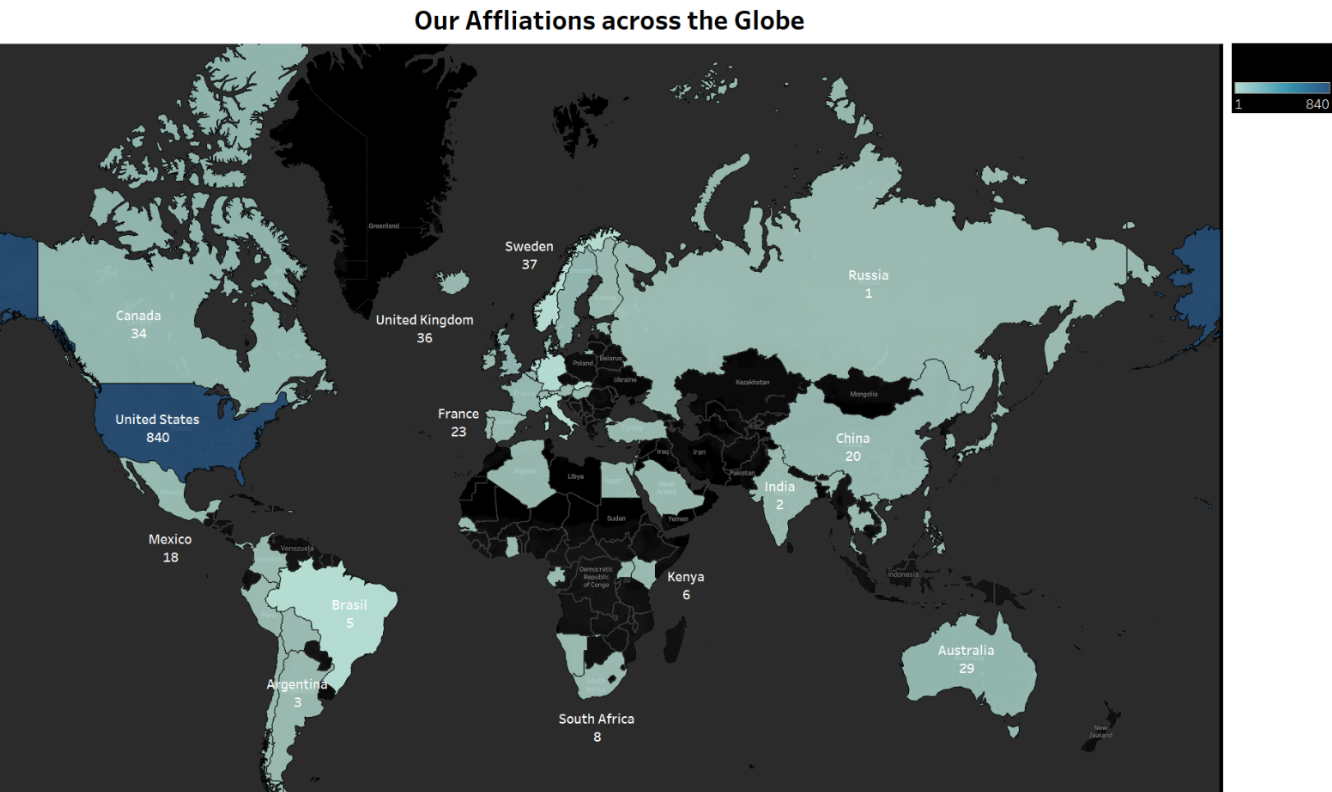
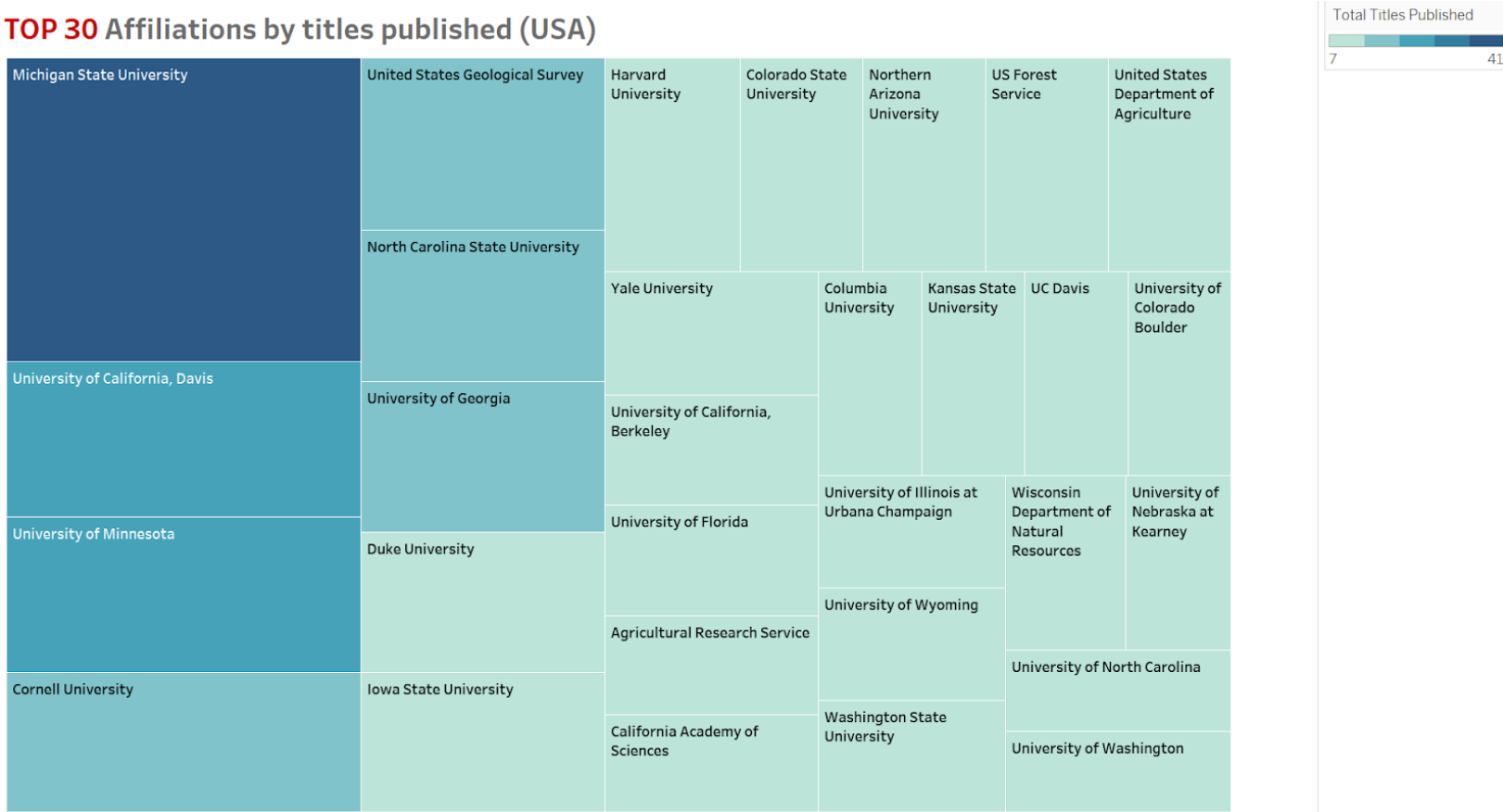
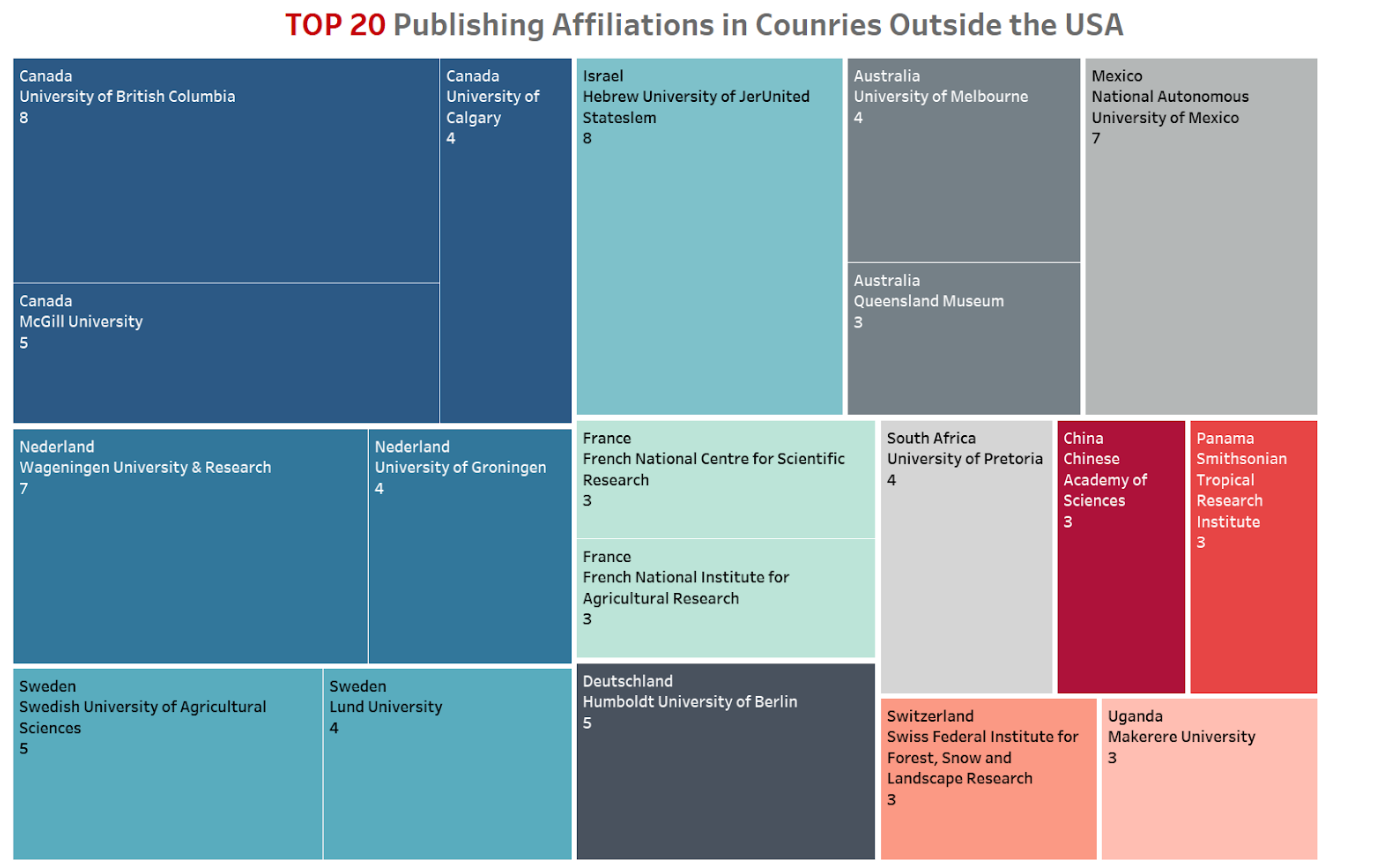
Report prepared by Cameron Cook
Data visualizations prepared by Rahil Virani